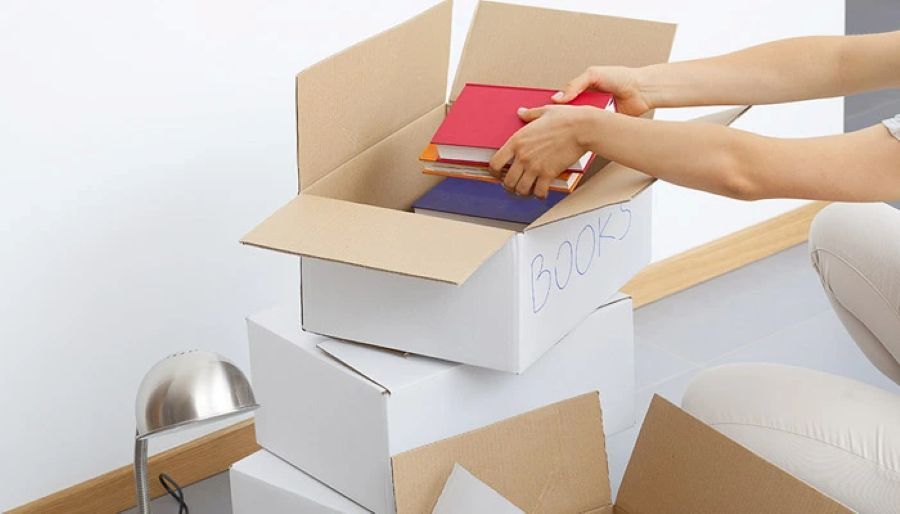How Do You Create a Move Management Plan?
You can create a move management plan by following simple steps that help organize your moving process. A good move management plan includes setting a timeline, making a budget, getting organized, and planning each step of your move from start to finish.
Moving can feel scary and hard to handle. Research shows that moving is one of life's most stressful events, with studies finding that changing residence significantly increases people's overall stress levels. But with the right plan, you can make it much easier. This guide will show you exactly how to create a move management plan that works for you and your family.
What Is a Move Management Plan?
A move management plan is like a roadmap for your move. It lists all the things you need to do before, during, and after moving day. Think of it as your moving helper that keeps you on track.
Move management involves careful planning, clear communication, and coordination. When you have a plan, you won't forget important things or feel stressed about what comes next.
Why You Need a Move Management Plan
Here's why having a plan helps:
- You save time and money
- You feel less stressed
- You don't forget important tasks
- Your move goes more smoothly
- Everything gets done on time
Setting Your Move Timeline
The best time to start planning is 8 weeks before your move date. This gives you plenty of time to get everything done without rushing.
8-Week Planning Schedule
8 Weeks Before:
- Set your moving budget
- Start looking for moving companies
- Create a moving folder for all your papers
- Begin sorting through your stuff
6 Weeks Before:
- Get quotes from local movers
- Start using up food in your freezer
- Tell your landlord you're moving out
- Book time off work for moving day
4 Weeks Before:
- Choose your moving company
- Start packing things you don't use much
- Change your address with the post office
- Set up utilities at your new home
2 Weeks Before:
- Confirm details with your movers
- Pack most of your belongings
- Use up cleaning supplies
- Get your car ready if driving far
1 Week Before:
- Pack a box of things you'll need right away
- Clean out your fridge
- Get cash ready for moving day tips
- Do a final cleaning of empty rooms
Creating Your Moving Budget
Money planning is a big part of your move management plan. Set a moving budget to determine how much you're willing to spend. Here are the main costs to think about:
Main Moving Costs
- Moving company: $800-$3,000 for local moves according to industry data
- Packing supplies: $150-$300
- Storage unit: $50-$200 per month
- Travel costs: Gas, hotels, food
- New home setup: Utility deposits, repairs
Money-Saving Tips
- Get quotes from at least 3 moving companies
- Move during off-peak times (fall/winter)
- Pack your own boxes
- Use free boxes from liquor stores
- Sell things you don't need
Getting Organized for Your Move
Good planning starts with getting organized. Create a "move file" for quotes, receipts, and other paperwork. This keeps all your important papers in one place.
Setting Up Your Move File
Create folders for:
- Moving company quotes and contracts
- New home paperwork
- School and medical records
- Insurance papers
- Moving receipts
You can use a real folder or make folders on your computer. The important thing is keeping everything together.
Choosing Between DIY and Professional Help
One big decision is whether to hire movers or do it yourself. Each choice has good and bad points.
Hiring Professional Movers
Good points:
- They handle heavy lifting
- They have the right equipment
- They pack things safely
- You save time and energy
Bad points:
- Costs more money
- You have less control
- Need to schedule around their availability
DIY Moving
Good points:
- Saves money
- You control everything
- More flexible timing
Bad points:
- Lots of hard work
- Need to rent a truck
- Risk of injury or damage
If you choose professional help, look for packing services and read reviews carefully.
Decluttering and Sorting Your Belongings
Before you pack anything, go through all your stuff. Label items as move, sell, donate, or discard. This step saves you money and makes packing easier.
The Four-Box Method
Get four boxes and label them:
- Keep: Things you use and love
- Sell: Good items worth money
- Donate: Useful things you don't need
- Trash: Broken or worn-out items
Go room by room and put everything in one of these boxes. Be honest about what you really need.
Room-by-Room Sorting Tips
Kitchen:
- Check expiration dates on food
- Get rid of broken dishes
- Keep only the tools you actually use
Bedroom:
- Try on clothes to see if they still fit
- Donate books you won't read again
- Sort through old papers and photos
Living Room:
- Test electronics to make sure they work
- Consider if furniture fits your new space
- Pack decorations you love most
Packing Strategies and Tips
Smart packing makes unpacking much easier. Start with things you don't use every day and save daily items for last.
What to Pack First
- Out-of-season clothes
- Books and decorations
- Extra dishes and kitchen gadgets
- Holiday decorations
- Craft supplies
Packing Room by Room
Pack one room at a time. This keeps you organized and makes unpacking easier. Pack things you use every day last, such as toiletries, so they remain easily accessible.
Essential Packing Supplies
- Moving boxes in different sizes
- Packing tape
- Bubble wrap or newspaper
- Markers for labeling
- Plastic bags for small parts
Labeling System
Write on each box:
- What room it goes to
- What's inside
- If it's fragile or heavy
Use different colored tape or stickers for each room. This helps movers know where everything goes.
Managing Important Documents
Keep important papers with you during the move. Don't pack these in the moving truck:
Documents to Carry With You
- Birth certificates and passports
- Social Security cards
- Insurance papers
- Bank account information
- School and medical records
- Moving contracts and receipts
Put these in a special folder that travels with you, not with the movers.
Handling Special Items
Some things need extra care or can't go in the moving truck.
Items Movers Won't Take
- Gasoline and propane
- Paint and chemicals
- Plants (for long moves)
- Jewelry and valuables
- Important papers
Moving Plants and Pets
Plants:
- Water them well before the move
- Put them in boxes with air holes
- Keep them in your car, not the truck
Pets:
- Update their ID tags
- Pack their food and toys
- Plan stops for bathroom breaks
Consider senior moving services if you need extra help with special items.
Setting Up Utilities and Services
Set up electricity, gas, water, and internet connections at your new home. Do this at least 2 weeks before moving day.
Essential Services to Set Up
- Electricity and gas
- Water and sewer
- Internet and cable
- Trash pickup
- Security system
Services to Cancel or Transfer
- Newspaper delivery
- Gym membership
- Streaming services
- Insurance policies
- Bank accounts (if changing cities)
Call each company and ask about their moving process. Some services can transfer easily, while others need to be canceled and restarted.
Moving Day Preparation
The week before moving day, get everything ready for the big day.
Moving Day Essentials Box
Pack a special box with things you'll need right away:
- Change of clothes
- Toiletries and medicines
- Phone chargers
- Snacks and water
- Cleaning supplies
- Toilet paper
- Basic tools
Day Before Moving
- Pack a suitcase like you're going on a trip
- Clean out your fridge completely
- Take apart furniture if needed
- Get a good night's sleep
Post-Move Tasks
Your move management plan doesn't end when the truck leaves. You still have important things to do.
First Week After Moving
- Unpack your essentials box
- Set up your bedroom and bathroom first
- Find and test all light switches
- Locate the circuit breaker and water shut-off
- Register with local services
First Month After Moving
- Update your driver's license
- Register to vote in your new area
- Find new doctors and dentists
- Explore your new neighborhood
- Meet your neighbors
Consider storage solutions if you need time to organize everything in your new home.
Common Moving Mistakes to Avoid
Learn from others' mistakes to make your move smoother:
Planning Mistakes
- Starting too late
- Not getting enough quotes
- Forgetting to change your address
- Not reading the moving contract
Packing Mistakes
- Using boxes that are too big
- Not labeling boxes clearly
- Packing heavy items in large boxes
- Forgetting to empty drawers
Moving Day Mistakes
- Not being ready when movers arrive
- Not checking inventory lists
- Forgetting to tip the movers
- Not doing a final walkthrough
Creating a Moving Day Schedule
Plan your moving day hour by hour. This keeps everything on track.
Sample Moving Day Timeline
7:00 AM: Wake up and eat breakfast
8:00 AM: Finish last-minute packing
9:00 AM: Movers arrive - do walkthrough
9:30 AM: Loading begins
12:00 PM: Lunch break
1:00 PM: Travel to new home
3:00 PM: Unloading begins
5:00 PM: Final paperwork and tips
6:00 PM: Order dinner and rest
Having a schedule helps you know what to expect all day.
Technology Tools for Move Management
Use apps and websites to stay organized:
Helpful Moving Apps
- Moving checklist apps: Keep track of tasks
- Inventory apps: List all your belongings
- Photo apps: Take pictures of valuable items
- Notes apps: Write down important information
Online Resources
- Change of address services
- Utility company websites
- Moving company reviews
- Packing tutorials on video sites
Working with Moving Companies
If you hire professional movers, work with them as a team.
Questions to Ask Movers
- Are you licensed and insured?
- What does your price include?
- How do you handle damaged items?
- What items won't you move?
- Can I pack some boxes myself?
Moving Day Communication
- Be available to answer questions
- Check inventory lists carefully
- Point out fragile or valuable items
- Keep important papers with you
- Take photos of any damage right away
If you're moving within Alberta, check out our Edmonton area services to find local help.
Dealing with Moving Stress
Moving is one of life's most stressful events, ranking alongside major life changes like divorce or job loss. Research published by the National Center for Biotechnology Information shows that moving creates tremendous pressure and anxiety for individuals. Here's how to handle the pressure:
Stress-Reduction Tips
- Take breaks when planning gets overwhelming
- Ask friends and family for help
- Keep your sense of humor
- Focus on the exciting parts of moving
- Remember that some chaos is normal
Getting Help When You Need It
Don't try to do everything alone. Ask for help with:
- Babysitting on moving day
- Packing and cleaning
- Transportation for special items
- Emotional support
Budget-Friendly Moving Solutions
Moving doesn't have to break the bank. Here are ways to save money:
Free Moving Supplies
- Boxes from liquor stores and grocery stores
- Newspaper for wrapping (ask neighbors)
- Towels and blankets for padding
- Suitcases for heavy items like books
DIY Options
- Rent a truck and do the work yourself
- Hire help just for loading and unloading
- Use labor-only movers for heavy items
- Move during off-peak times for better rates
Final Thoughts
Creating a move management plan takes time, but it makes your move much easier. Start early, stay organized, and don't be afraid to ask for help when you need it.
Remember that every move is different. Use this guide as your starting point, but adjust it to fit your needs. The most important thing is having a plan that works for you.
Moving to a new home is exciting, even when it's stressful. With good planning and the right help, you can make your move a success. According to the American Trucking Association, the moving industry contributes $92.2 billion in economic activity annually and employs over 480,000 people. Whether you need local movers or long-distance moving services, having a plan makes everything go smoother.
Ready to start planning your move? Contact our friendly team at Last Stop Moving for a free quote and expert guidance throughout your moving journey.



